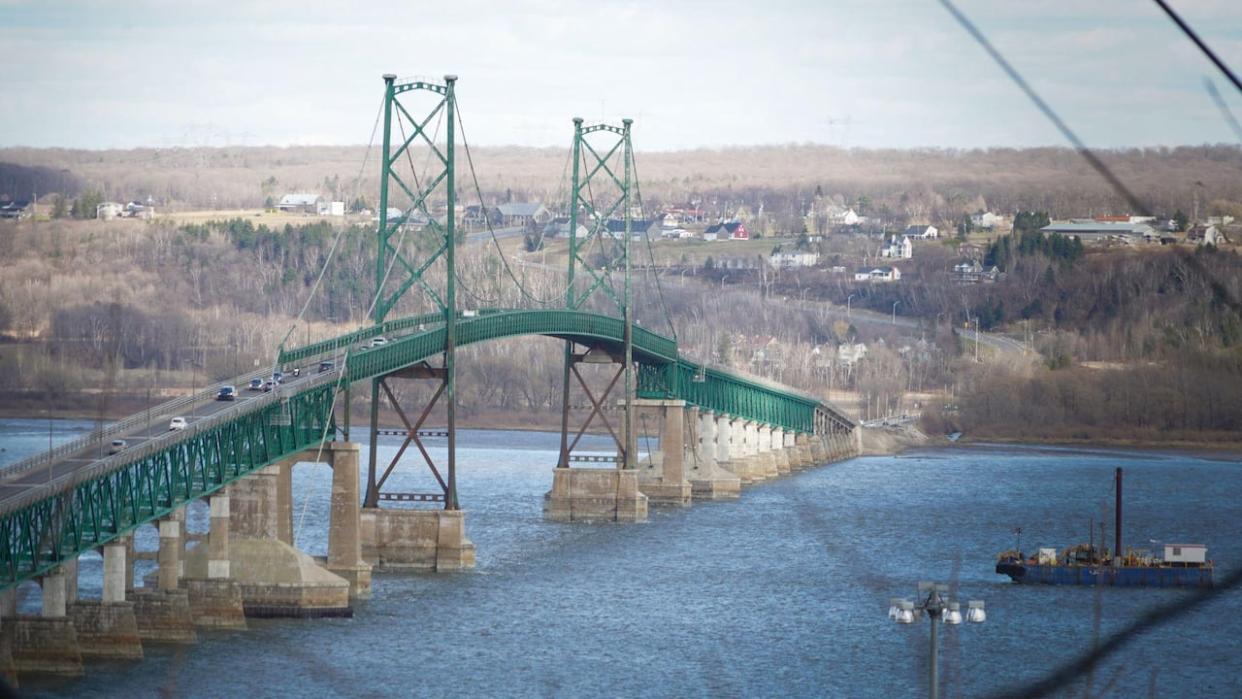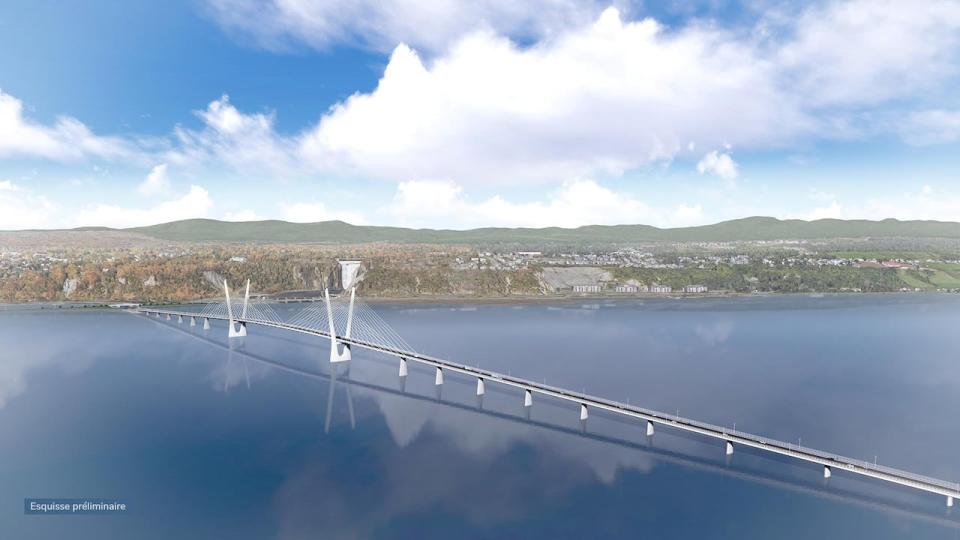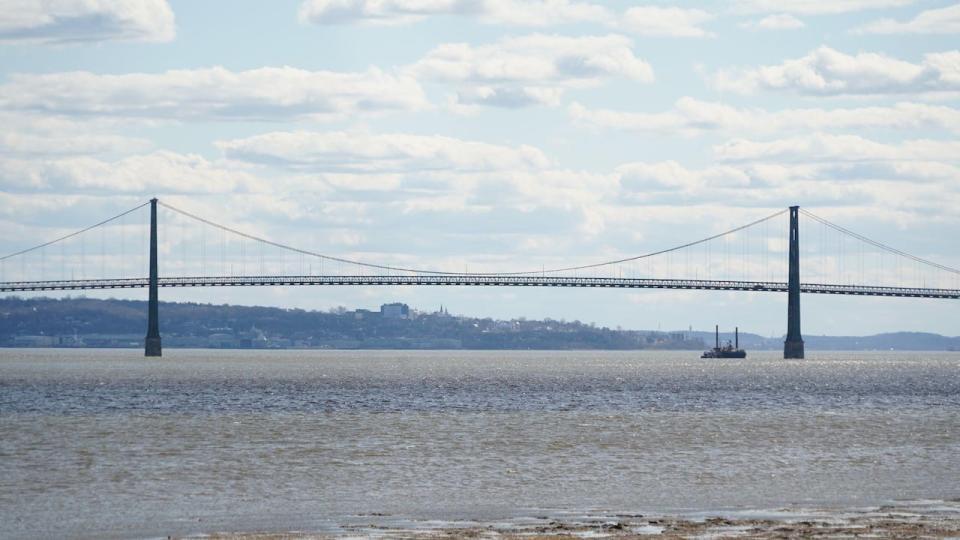New bridge from Quebec City to Île d'Orléans comes with $2.7B price tag

The Quebec government announced a $2.7-billion project to demolish and rebuild the bridge connecting Île d'Orléans, just northeast of Quebec City, to the mainland on Tuesday.
The bridge, which was inaugurated in 1935, does not meet modern safety norms and does not have the capacity to carry heavy vehicles, said Transport Minister Geneviève Guilbault.
The new cable-stayed bridge will be located west of the current one and will be wider and safer — with two secure lanes for cyclists and pedestrians.
At a news conference, Guilbault said she's aware that the $2.7-billion price tag is steep.
"It may startle people," said Guilbault. "This cost may raise questions."
She says in addition to inflation and recent interest rate hikes, the cost is also due to several unique challenges specific to the island.

The preliminary plans for the cable-stayed bridge will be just over two kilometres long. (Quebec Transport Ministry)
Guilbault says construction teams will have to dig about 80 metres into sediment at the bottom of the St. Lawrence River to secure the bridge onto hard rock.
And since it's unsafe to have machinery and heavy trucks cross the bridge, Guilbault said all construction material and equipment for the project will have to be brought to the island by boat.
Long time coming, say locals
François Blouin, president of the island's union for agricultural producers, says the new bridge has been a long time coming.
"I've been campaigning for new infrastructure since 2002," said Blouin.
"So 22 years later they announce it … it's far too long."
He says one of the key issues is transportation costs, which are much higher for heavier crops, like potatoes.

François Blouin says he's been campaigning for a new bridge since 2002. (Bruno Giguère/Radio-Canada)
"It costs us a lot more for these producers," said Blouin. "It undermines their ability to invest and it also undermines their survival."
Jean Lapointe, the mayor of Saint-Jean, a town on the island, says the weight restrictions on the current bridge bring an additional burden to taxpayers as the town undergoes renovations.
"It's a good announcement for citizens on the island," said Lapointe.
New bridge to open in 2028
Excluding locals, Guilbault said 800,000 visitors cross the bridge every year. The new bridge is expected to open in 2028, and the old bridge demolished by 2033.
The cost of this project is almost seven times higher than the initial estimate of $400 million announced more than 10 years ago, at the end of then-premier Jean Charest's mandate.

Transport Minister Geneviève Guilbault says the current birdge does not meet all the neccesary safety norms. (Sylvain Roy Roussel/CBC)
The estimate includes the reconstruction of Côte du Pont, at the entrance to the island, the design contract, the demolition of the existing bridge and a reserve of at least $100 million for emergency costs related to the project.
The demolition will be the subject of a future call for tenders.
'The CAQ procrastinated,' says PQ leader
Reacting to the announcement, opposition parties agreed that the bridge construction is necessary as a matter of public security but blamed the higher costs on the government dragging its feet on the issue.
"I have not heard a clear explanation to date on why it's so expensive," said Paul St-Pierre Plamondon, leader of the Parti Québécois, Tuesday.
"We know that the CAQ procrastinated on this file."
Québec Solidaire co-spokesperson Gabriel Nadeau-Dubois said the CAQ government delayed the construction in an effort to include it in the third link project, which the CAQ backtracked on last year.
"When I woke up this morning I think I had the same reaction as everyone in Quebec. It's a big amount," said Nadeau-Dubois.
"We lost a lot of time and we lost a lot of money with all those flip-flops from the CAQ around the third link. We should have launched that project years ago."

